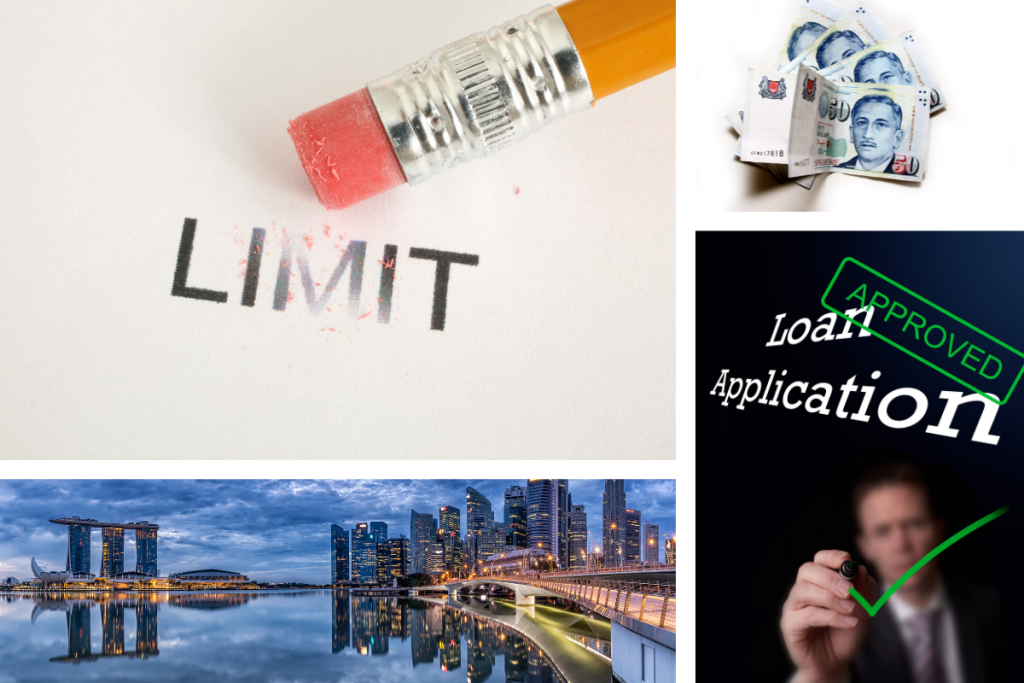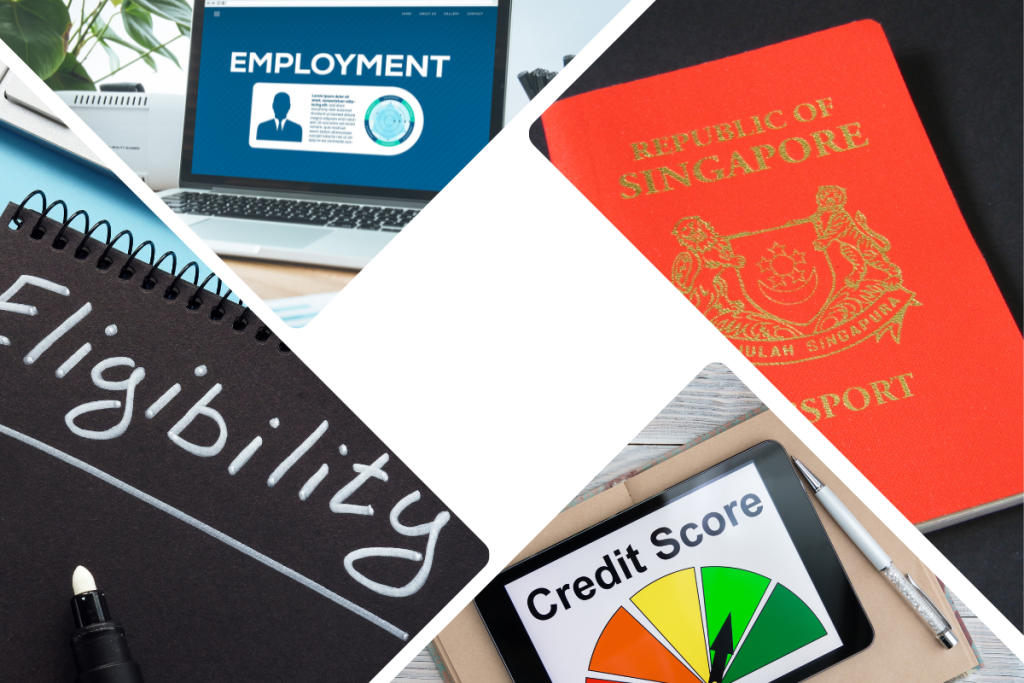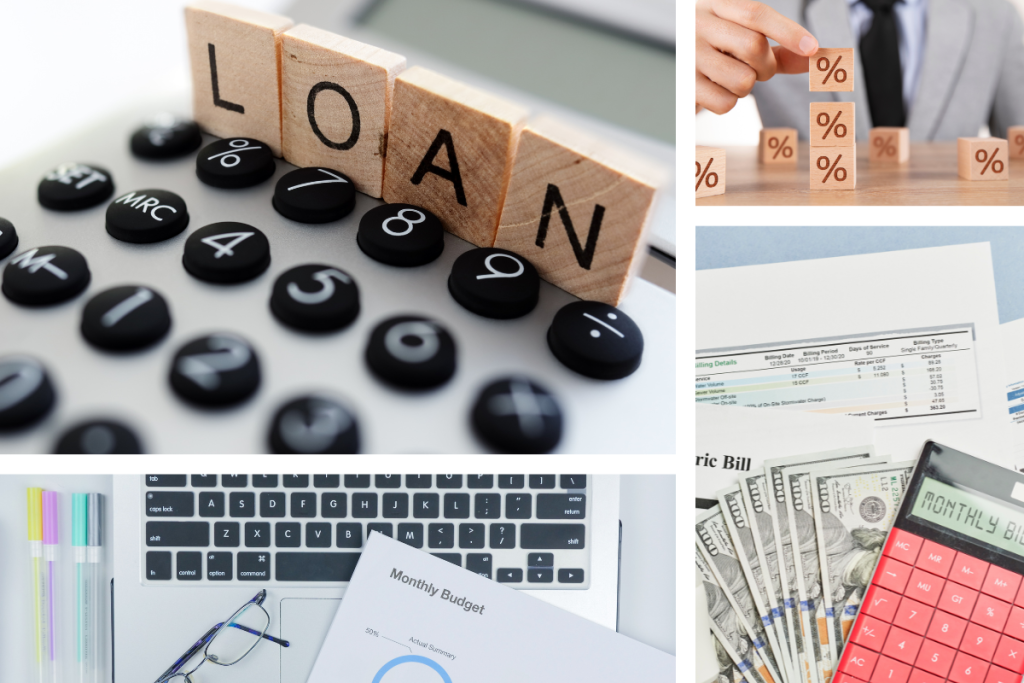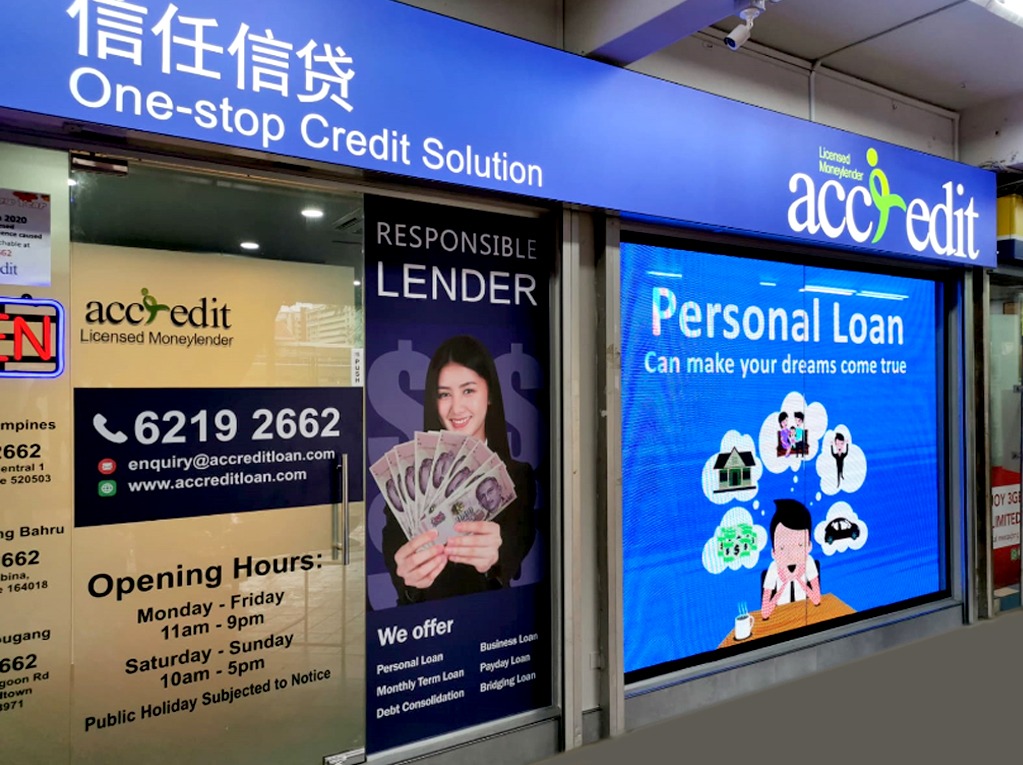This Guide to Getting a Personal Loan in Singapore helps you address the following questions and provides all the information you need to know before getting a personal loan from a bank in Singapore.
- Have you ever been into two minds about getting a personal loan from the bank because you feel they might reject you?
- Am I qualified?
- What are the bank requirements?
- How soon will my loan application be approved?
What is a personal loan?

A personal loan may obtain from a bank, a licensed moneylender, a credit union, or any other financial institution. The money from the personal loan may be spent for various purposes, including homes, weddings, and renovations.
Personal loans should only be taken out when you have a real need for additional cash as you need to pay interest on the loan over the loan tenure.
In this article, all “Personal loans” mentioned are “Unsecured Loans” in nature, unless otherwise stated for the purpose of illustration. “Unsecured loans” are loans where the borrowers do not have to give the lender any security or collateral in exchange for the loan. On the other hand, when borrowers go to a pawnshop for a loan, the borrower has to provide “collateral” in exchange for a “loan” from the pawnshop – for example pledging a gold bar to a pawnshop in return for a “loan”.
Is there a cap on how many personal loans you can take from banks in Singapore?

The response is, “It depends.”
You may apply for different personal loans from different banks (we do not encourage this), but the cap (the amount that you can borrow) will be based on the unsecured credit borrowing limit set by the Monetary Authority of Singapore (MAS), which is 12 times your monthly earnings.
It is not advisable to apply for many personal loans or credit lines at the same time from different banks, the bank view this action negatively and this can potentially affect the outcome of your credit application.
Credit cards, personal loans, student loans, personal lines of credit, and any other kind of interest-bearing unsecured debt are all examples of unsecured credit.
In general, you can borrow up to six times your monthly salary from banks and other financial institutions in Singapore (assuming you have a good credit score).
On the assumption that you make $6,000 a month, have a strong credit history, and have no other unsecured debt. You can take a personal loan for up to $36,000 ($6000 x 6) based on your monthly salary.
You can choose to obtain five or six loans of S$6,000 each or two loans totaling S$18,000 as long as you remain under the total borrowing limit.
You should be aware that banks and financial institutions will consider your total amount of outstanding debt, including your: credit card balances, other personal loans, and credit score, when setting your borrowing limit.
You won’t be able to obtain more unsecured credit if you go above this limit for three consecutive months. If you need a personal loan, make a loan application here.
Benefits and Drawbacks of Personal Loans from Banks

A bank loan might be helpful when financing expensive purchases like your dream house or even extensive home upgrades.
Banks usually provide reasonable interest rates as long as you have a fair to excellent credit rating and complete your regular loan installments on time.
Benefits of personal loans from banks
- Ability to borrow a lump sum from a single entity. When you need extra cash, it is more convenient for you to borrow a lump sum from a single lender as opposed to borrowing from different individuals.
- Interest rates from banks are fairly stable and reasonable (assuming you have a good credit score) and loan repayments are manageable
- Simple to secure – With internet banking, personal loans can be applied easily online.
- Building up your credit score with banks – if you make timely repayments on your loans until the debt is discharged, taking personal loans from banks is a good way to build up your credit score which allows you to take more loans with banks in the future (assuming you put the loans to good use). Your payment history will demonstrate to lenders how trustworthy and dependable you are.
- Taking personal loans from banks is a commercial transaction (with no personal favors owned) as compared to borrowing from family and friends.
Drawbacks of personal loans from banks
- False sense of financial security – being able to borrow money from banks gives the borrower a false sense of security. Reckless borrowing without good uses for the loan can lead to financial problems.
- Harming your credit score – unlike loans from family and friends, defaulting on personal loan repayments will affect your credit score and hinder your ability to take out loans in the future.
- Financial penalties – Missing monthly repayments with banks will lead to late charges (with chargeable interest). This can escalate quickly if you do not manage your personal finances well.
Borrowing from banks versus licensed money lenders – What are the differences?

It is easy to identify a bank as they are large organizations with established retail outlets and websites. With money lenders, you will need to be more careful as there are many illegal money lenders disguised as legitimate ones.
In Singapore, it is simple to locate a registered moneylender. You can visit the Registry of Moneylenders, there is a list of licensed money lenders.
Contrary to popular belief, sometimes borrowing from licensed money lenders is a better option than taking a personal loan from a bank.
- Generally, for borrowers with good credit scores, it makes financial sense to borrow from banks due to the low-interest rates. This is why there is a saying, the bank is like the person who offers to lend you an umbrella when it is not raining, as soon as it rains, the bank takes the umbrella away.
- For borrowers with bad credit scores, banks often do not lend due to the higher risks involved. In cases like this, it makes sense to borrow from licensed money lenders. Licensed moneylenders have to charge higher interest rates due to the high risk of defaults.
- Speed of approval – Licensed money lenders can often approve loans in a matter of hours (assuming all paperwork is in place). For borrowers who need emergency loans, borrowing from licensed money lenders is a viable option. If you need an emergency personal loan, apply with Accredit Loan here.
Borrowing Eligibility and Requirements

Borrowing eligibility for banks
- Minimum age of 21
- Valid Singapore residency status
- Full-Time Employment
- Document proving employment
- Electronic payslips for three months
- Assessment Notice for Two Years
- 12-Month Contribution History to CPF
- Credit History from any prior finance or financial service usage.
- Yearly income of at least S$20,000.
- Good credit rating
Typically for banks, a borrower has to be a Singapore citizen or Permanent Resident (PR) with an annual income of SGD$30,000, or a foreigner working in Singapore with an annual income of SGD$40,000 with good credit standing to take an unsecured personal loan
Borrowing eligibility for licensed moneylenders
- Valid Singapore residency status
- Minimum age of 21
- Proof of employment
- Proof of income (pay slips)
- No requirement for a good credit score
The credit score for any individual in Singapore ranges between 1000 (high risk of default) to 2000 (lowest risk of default). Banks favor loan applicants with credit ratings near the 2000 spectrum.
Although legal money lenders in Singapore do offer personal loans to borrowers with bad credit scores, they have to operate within the regulations set out by the Money Authority of Singapore (MAS).
Licensed money lenders also consider the total income-to-debt ratio. As such, it may be necessary to furnish additional information to the money lenders for such a purpose.
Notes: According to the Ministry of Law’s “Guide to borrowing from licensed money lenders in Singapore”,
- The borrower is legally obligated to fulfill any contractual commitments with a licensed money lender
- Borrow what you need and consider your financial obligations carefully. Penalties can be imposed for failure to meet the contract agreement.
- Always make sure you understand the terms of the contract with a money lender in a language you understand. Of importance is the terms of contracts, repayment period, and schedule together with the interest rates and late payment fees.
- Always have a copy of the loan agreement with you when you take out a loan with a licensed money lender
- You can borrow any amount from a licensed money lender if you are taking a secured loan (for example providing private property as collateral).
- For unsecured loans, MLaw.gov.sg has clear guidelines on the total amount you can borrow at any one time from all legal money lenders in Singapore.
- From 1st October 2015, the maximum interest rate licensed money lenders can impose is up to 4% per month (regardless of secure or unsecured loans).
- Late payment fees on loans from 1st October 2015 – all licensed money lenders can only charge a fee of not more than SGD$60 for each month of late repayment.
If a borrower has a good payment history with a licensed money lender and is deemed a low default risk, it is possible for the borrower to negotiate a lower monthly interest rate. To find out the best interest rate you can enjoy with Accredit Loan, apply for a personal loan with us here.
Use a Personal Loan Calculator

Before taking out a personal loan, use an online personal loan calculator (we have 1 on our homepage) and crunch all the numbers before you commit to a loan.
Always consider your financial obligations before taking out any personal loans.
Understanding Credit Scores and Why They’re Important

Why your credit report is important?
The information on your credit report comes from your various financial institutions and organization which track your payment history.
Having a solid credit history will increase your chances of being approved for credit and loans, as most lenders will look at your file to determine your creditworthiness before assessing your credit risk. It is a good idea to check your credit report frequently to monitor your credit score.
Factors that affect your credit scores
Late loan payments – Also known as “delinquency.” These are considered negatives and will lower your credit score.
Applications for new credit (loans) – if you make applications for multiple credit facilities within a relatively short period of time, financial institutions view this negatively for your credit risk assessment.
Total debt taken – the more debt you take, the higher your credit risk and lower your credit score becomes
Total available credit – This term refers to the number of credit facilities you possess. If you have many lines of credit and credit cards, your credit score may be decreased.
Duration of your credit history – Lenders favor borrowers with longer credit histories over those with short or no credit histories. Nevertheless, you would need a history of timely bill payments to support your credit score.
What is your credit score?
Your credit score ranges from a minimum of 1,000 to a maximum of 2,000 based on the above-described credit behavior.
Those at the bottom of the scale, with a score of 1,000, are labeled as having the highest chance of payment default. They have an HH rating.
Those with the highest possible score, 2,000 points, are viewed as having the lowest risk. And they’d have the highest possible credit rating of AA.
Lenders will consider the credit score while making loan decisions. Other considerations may include your annual pay, tenure of employment, and bankruptcy or legal history. Your credit score may also affect whether the lender would offer you the lowest interest rates available to borrowers with the highest credit scores.
Your account repayment history is tracked on a 12-month rolling basis for the purpose of calculating your credit score. Therefore, it is possible to rebuild your account repayment history within 12 months provided you make all payments on time.
Why is having a high credit score important in Singapore?
Banks will use your credit score to calculate your loan quantum, or how much money they are prepared to offer you. If you don’t have good credit, you won’t get a loan at all, or you’ll get one with a smaller amount.
When you apply for a job, a potential employer could sometimes request to check your credit score. Employers may reject applicants with poor credit, especially in the banking sector.
For loans of $500 or less, banks and financial institutions don’t verify your credit rating.
Bad Credit Score
If you have a poor credit score, the bank will not provide you loans at the best terms they offer customers with the highest credit scores.
The scale has a maximum and a minimum score of 2,000 and 1,000, respectively. Singaporeans believe their credit score to be good if it is at least close to 2,000 or above.
However, if your score is between 1,000 and 1,723, you have a poor credit rating and are categorized as a high-risk party (“HH”). Even if you have a bad credit score, we may still be able to help you to secure a personal loan. Find out by filling up the personal loan application form here.
How to Apply for a Personal Loan in Singapore When You Have a Low Credit Score?

Poor credit rating makes it difficult for you to obtain a personal loan in Singapore. What you can do to boost your credit score is listed below.
Consider a smaller loan amount.
You might be unable to obtain a hefty personal loan from a bank if you have a poor credit score. This is because a low credit score or a poor credit history suggests that you won’t be able to make your loan installments timely.
As a result, if you’re having difficulties obtaining your personal loan, start by building your credit score.
You can apply for a smaller personal loan amount and ensure you make all your payments timely. Do not miss any payments.
Your goal is to show that you can comply with a set repayment schedule. Banks want to know that you can repay your loan on time.
You can consider repeating the process above several times to continuously improve your credit score over time so that the likelihood of the bank granting you a larger loan is higher. This is also true for money lenders.
Restructure your debt obligation
Talk to your banks for options to restructure your debt if you are having problems. Communicate to them, negotiate a comfortable payment schedule and stick to it. You may bargain for a reduced monthly payment by agreeing to a prolonged repayment period to make it easier for you to make your payments on time.
Debt consolidation plans and balance transfers are possible approaches to restructuring your debt. If you need help setting up a meeting with your banks to negotiate a debt settlement, contact Credit Counseling Singapore.
The goal of debt restructuring is to enable you to start repaying your debts. You may improve your credit history and get closer to paying off your debt by making frequent, complete, and on-time payments.
Take a loan from a credit union.
When a person needs a personal loan but has a low credit score, credit unions in Singapore might help. Since credit unions are non-profit enterprises, they have more lenient terms and conditions than banks and other regulated companies. As a result, credit unions can work with customers that banks deem to be riskier. You may wish to compare different credit unions since they have a variety of loan terms and conditions, monthly payments, and interest rates for you to have a better decision.
Take a loan from a licensed money lender
Licensed money lenders are businesses that offer high-risk loans to borrowers with bad credit scores. Be sure to consider only legal money lenders with licenses. Here at Accredit Loan, we are a regulated and responsible moneylender in Singapore that provides personal loans at competitive interest rates. Accredit Loan offers great customer service and has your best interests at heart, file a personal loan application online now.



